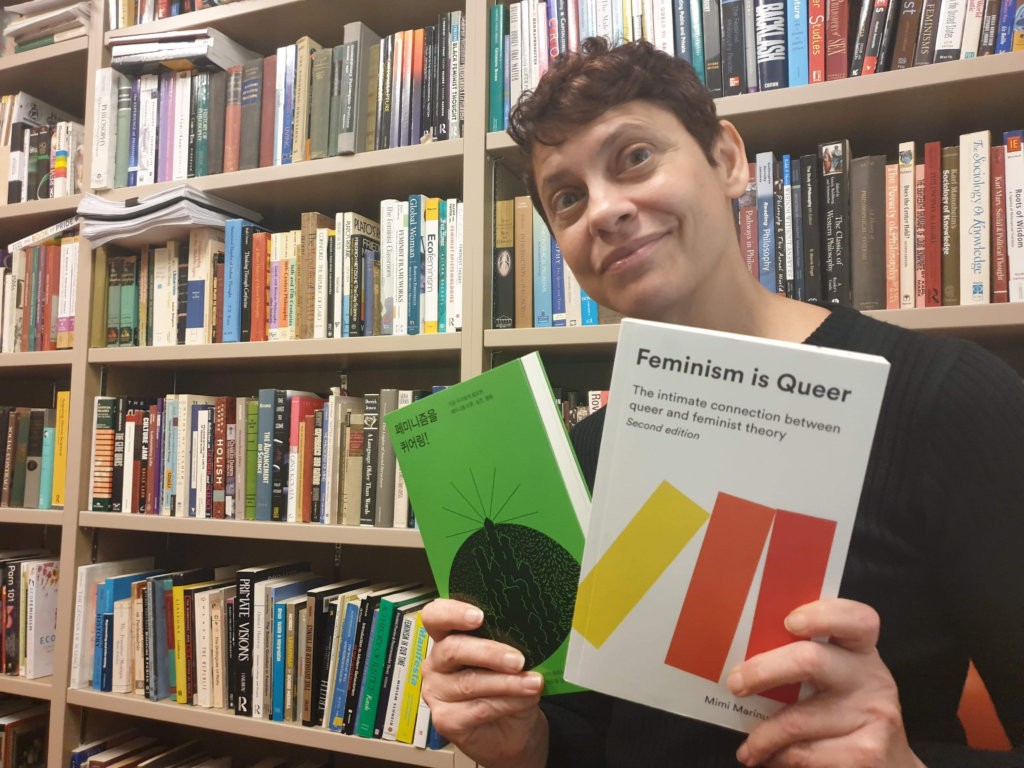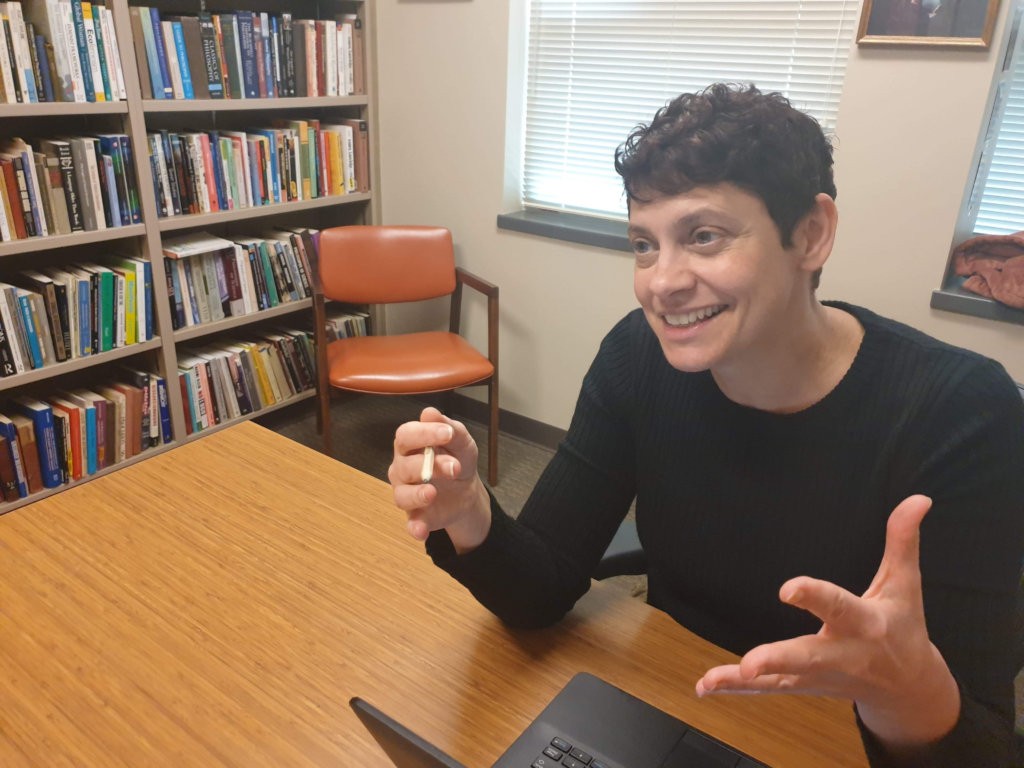Like many university professors, EWU’s Mimi Marinucci uses her own book in one of the classes she teaches. But she never imagined that a former student would help her promote her work to readers half-way around the world.Marinucci is a professor of philosophy and women’s and gender studies at Eastern. In her Queer Theory class, she uses her book, Feminism is Queer, to explore how queer theory is continuous with feminist theory. According to the description by the publisher, Zed Books of London, Feminism is Queer is an indispensable guide for anyone with an interest in gender, sexuality and the connections between feminism and queer issues.

A few years ago, Marinucci says, her publisher sold translation rights for the book to a South Korean publishing company. “I emailed back and forth with the translator and I wrote a new preface,” she says, “but I really didn’t know how to obtain any further information about it.” That was until a former student stopped by to visit in January.
Changhoon Lee studied with Marinucci as a philosophy major at EWU and returned to his home in South Korea after graduation. During a recent visit to the United States he stopped by Eastern’s philosophy department.
“He brought me a couple of copies of the Korean version of my book as a gift, and informed me that it has been getting quite a bit of attention,” Marinucci says. Thrilled with this news, she agreed to do an interview with a Korean newspaper. Lee assisted by translating Marinucci’s interview answers.

The article was published recently in the newspaper, Today. You can click here to see the article, but if you don’t speak Korean you’ll need to activate a translation plugin in your web browser.
Marinucci says she was honored to interview with the newspaper and share her expertise with a wider audience. And while she was first surprised by the interest, the translator who helped her with the Korean version of her book gave her some valuable insight.
“The person who translated my book explained some of what is happening with feminism in South Korea today,” says Marinucci. “It seems like feminism is growing, but, unfortunately, there is less acceptance of LGBTQ+ identities. I think that is much of the reason why a book that explicitly links feminism and queer theory is particularly provocative for Korean readers.”
Marinucci also says she recently gave permission for a Turkish academic journal to publish a translation of one of the chapters of the book.
“It will be interesting to see if that gets as much attention as the Korean translation,” she says.

